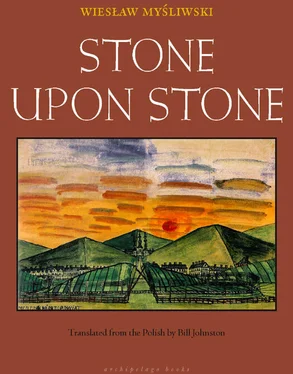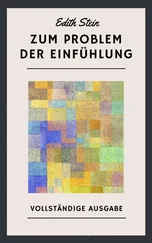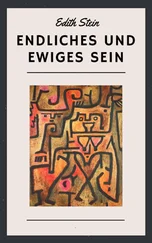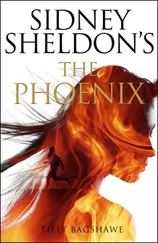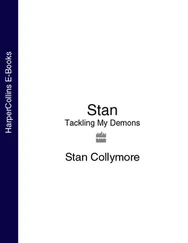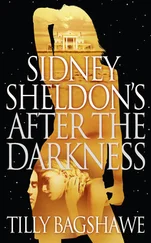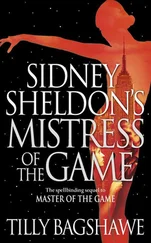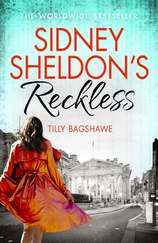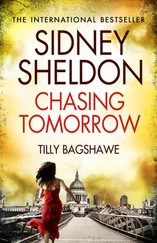“Basia, if you have to sit in the shade you should at least have a little dog.”
“A puppy, a puppy!” She started hugging and kissing it like it was the best thing that had ever happened to her.
I didn’t know what was so good about a dog, especially a black-and-white one that was still blind. Father had told us to drown them before they got their sight, or maybe leave just one, because what use were all those dogs. They’d just have to be fed the whole time they were growing up. Then later they’d start chasing after bitches, and get beaten by folks around the village and we’d end up having to look after a cripple dog. You could chain them up of course, but think how much chain you’d need to buy. It was bad enough the cow’s chain broke and no one had the time to take it to the blacksmith’s to get the link mended. And can you even imagine if all of them started howling? The racket would be unbearable. You wouldn’t sleep a wink all night, then how could you get up in the morning and go to work? Let alone wondering who’s died to make them howl like that. Lord, let’s just hope it isn’t any of our relatives. It wouldn’t be so bad if they were just howling to the moon, but the moon’s not always in the sky, while death is always there.
“Hey, little puppy. What’s its name?” she asked.
“It doesn’t have a name yet. I brought you one without a name so you can name it yourself.”
“You name it,” she said. “I want you to name it. I’ll call it whatever you decide.”
“Name it yourself. I gave it to you, it’s yours.”
“Please, give it a name.”
“What’s the big deal about naming a dog. You just call him the first thing that comes into your head.”
“All right, then he’ll be called Szymuś. Would you like that?”
“Don’t ask me, ask the dog. Makes no difference to me.”
“Szymuś, Szymuś.” She started cuddling it again, and blue tears flashed in her blue eyes. “It’s a pity I’m going to die soon.”
I moved up to the next grade, while she spent another six months dying in the shade. The white angel on her tomb has gone gray now and the tomb itself is all rough like old thatch, but there’s no sign of any cracks. The gold’s worn off the inscription, but you can still read the letters as clear as in a schoolbook. “My home stands gaping empty now and drear, My sweetest Basia, since you went from here. Your mother.” What was she, no more than twelve, but when you read it you’d think the whole world had died. I asked Chmiel if he’d made it up or if someone else wrote it for him.
“Who could have made it up,” he said. “It just goes from one tomb to another.”
While on the tombs the Woźniaks built it’s always the same thing, born on such and such a date, died on such and such, rest in peace.
Or the tomb of the young squire. That’s from before the war also. Maybe even from before the schoolteacher’s Basia. He died in his automobile. He’d drive it around the villages and the fields, frightening people and animals, and the dust he kicked up! There were times when after he’d driven by there was a cloud hanging over the village half the day, and people would be gasping like they had the consumption. You had to close the windows in your house and shoo the chickens and geese off the road, and if anyone was heading out into the fields they’d turn back as fast as they could. Because the horses were afraid of it the worst. The moment they heard it droning in the distance they’d rear up. The farmers would have to climb down off the wagon and hold them by the bridle. With horses that were already skittish even that wouldn’t work, they’d break the shaft, snap the reins, then turn the wagon over and run away. Some people said it was a sign of a coming plague. On top of everything he’d be wearing a leather pilot’s cap, and with those big goggles on his eyes he looked like Lucifer himself. That was what they called him. Lucifer’s coming! Lucifer’s coming! Every soul on the road would run for their life. And the old people would cross themselves three times and spit behind them, get thee behind me, Satan.
So one evening the cows were coming back from the pasture. And as usual with cows in those days, the road was all theirs. Also, they’d eaten their fill so they were moving slow and sleepy, you couldn’t have gotten them to go faster even with a stick. They wouldn’t let so much as a wagon get past them, let alone an automobile. They weren’t like the cows these days, that walk along with their ears pricked up and their skin twitching the whole time. The minute they hear the slightest noise behind them or in front, they move to the side of the road of their own accord. They’ve even learned to walk on the left. But back in the day cows were the masters of the road. Except that the young squire thought he was master of everything. And instead of stopping and waiting till they went their way, he started honking his horn and flashing his lights, he didn’t even slow down. And the cows just moved even closer together. He smashed one of them to pieces and broke another one’s legs, and he ended up a corpse himself.
I moved my finger across the inscription. It was even as a ditch, first name and last name, and, died tragically, you could read it all, and in front of the last name Count. The manors didn’t survive, though you’d have thought manors were a whole lot stronger than tombs.
When the front passed through, of all the tombs Chmiel’s survived the best then as well. And there’s no harder test for tombs than a war. For six weeks there were two German artillery batteries stationed at the cemetery, firing to the east day and night. And they were huge guns, every one of them. On top of that they were half dug into the ground so only their muzzles were poking out from among the graves, and with every round the whole hill with the cemetery on it would jump, and each time the crews working the guns had to open their mouths so as not to go deaf. And all those trees they cut down to make room for the guns.
And from the east the Russki guns fired day and night the same, for six weeks. It looked as though the cemetery hill would turn into a valley. It was so hellish even the worms couldn’t take it anymore, let alone the dead. It was like the earth itself was turned inside out, and all of eternity was flung to the surface.
There were skeletons, bodies, coffins, all over the place, like death had suddenly gone on the rampage all on its own because it had run short of living people and it had dragged the dead out of their graves so it could kill them all over again. Like even though they were supposed to already be dead, they were part of the earth now, some of them had rotted and some were nothing but dust — still they had to die a second time. And without even knowing they were dying. So when the front moved on they had to be buried again, like real dead people. And for years later the cemetery looked like a battlefield.
Any time you went there you’d see ruins and stumps of trees, the place was empty and silent, there was only the odd tomb or tree that had survived intact. As for the birds, it was like they’d vanished, you wouldn’t see even the lousiest little sparrow. And for the longest time afterward, even though there wasn’t any danger or anything for them there, they avoided the place like it was infected. They didn’t even perch there on their way to someplace else and sit and chirp. They didn’t even turn up there by accident. Or visit their old nest the way birds will do.
Before, the cemetery had been a paradise for birds. There were cuckoos, blackbirds, goldfinches, titmice, orioles, bullfinches, woodpeckers, crows, doves. Who could have even counted them all. The trees just about shook with them. They’d sing and chirp all day long, and cuckoo and caw. The moment you went into the cemetery you’d find yourself right in the middle of a hullabaloo of birds, before you even got to the graves. When you prayed, the words of the prayer would sometimes get lost in the din. Every so often Franciszek the sacristan would climb up into the trees and knock down the nests of the noisier ones, because he thought it was too cheerful for a cemetery. Though they didn’t just nest in the trees, but on the crosses and the Lord Jesuses and in the grass on the ground. But after the front had passed through, whenever a bird happened to fly over the place it would rise up higher in the sky, sometimes as high as its wings would carry it. As if it was suddenly hemmed in by something and its only escape was to climb higher and higher.
Читать дальше
